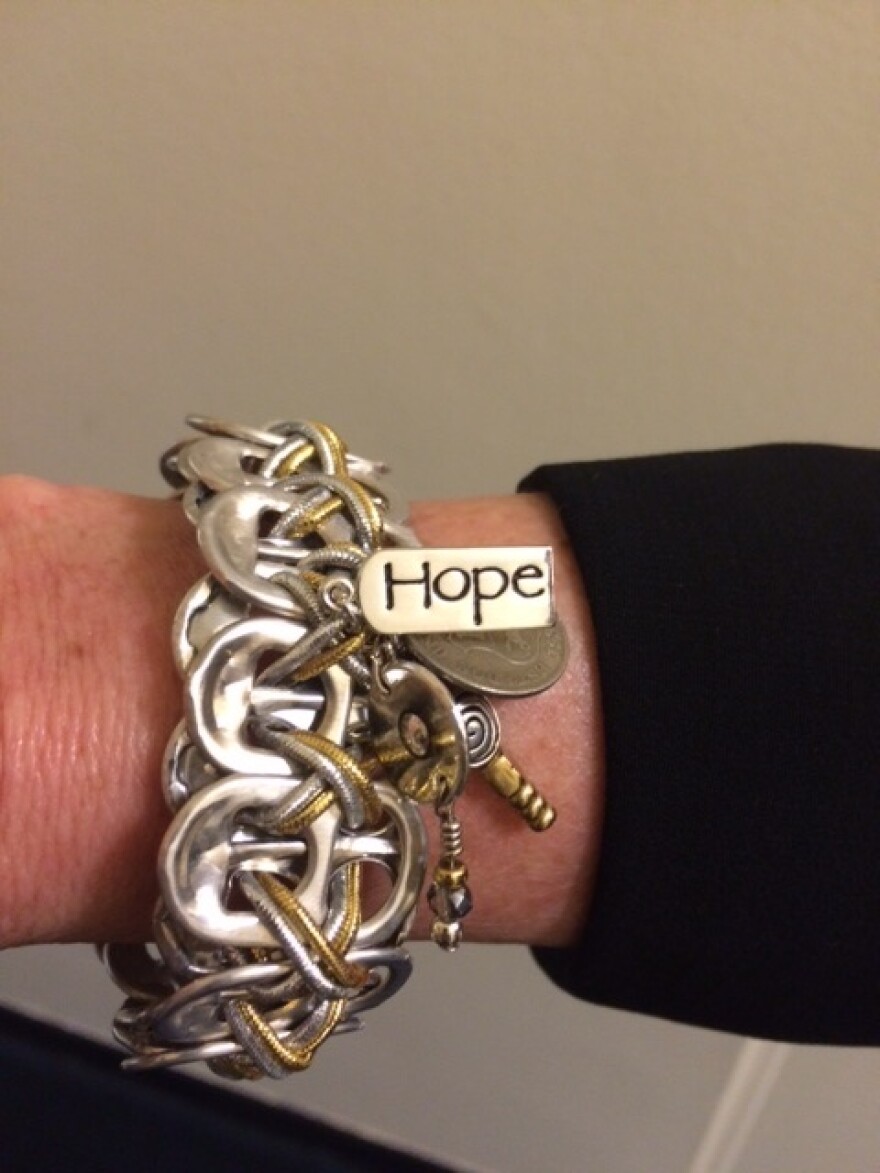The fight against sex trafficking is being waged in Jefferson City -- and Washington, D.C. Closer to home, the Missouri legislature is considering bills to allow victims of human trafficking to shield their home addresses from the public. And, in the nation's capital, the U.S. House passed several bills targeting human trafficking.
Missouri legislation to help human trafficking survivors
The Safe at Home Program currently allows victims of stalking, sexual assault and domestic violence to use substitute mailing addresses as they register to vote and create new public records for themselves. Secretary of State Jason Kander says House Bill 368 and Senate Bill 211 would allow human trafficking victims to take part in the program as well.
"Safe at Home has helped more than 2,500 Missourians," Kander said. "We believe that by extending eligibility to victims of human trafficking, we can protect many more Missourians."
Katie Rhodes, a survivor of trafficking, founded Healing Action, an organization to help victims.
"For me, leaving was the scariest part," Rhodes said. "My pimp had my Social Security number, driver's license, (and) access to my birth certificate -- I had a pretty real fear that no matter where I went he was going to be able to find me."
Rhodes said that her peer support group met Monday night and talked about the Safe at Home program.
"I had the opportunity, actually, to check in with these women and say, 'hey, what would it be like to have a confidential address, so that when you were getting out, you were going be able to feel safe?' Rhodes said, "and before I could even finish the sentence, all of them (gave) a resounding 'yes!'"
Senate Bill 211 and House Bill 368 are backed by state lawmakers from both parties; Democrat Gina Walsh of Bellefontaine Neighbors and Republican Bob Dixon of Springfield are the sponsor and co-sponsor, respectively, of the Senate version. Walsh also sponsored a bill last year to expand the definition of aggravated stalking to include anyone who deliberately tried to access the address of someone enrolled in the Safe at Home program. But the measure died in committee.
"I can tell you that Sen. (Tom) Dempsey's office came to me and was willing to work with me on that bill to solve the issues, (but) it was so late in the session that I decided to wait until this year," Walsh said. "I think that the leadership in this building...is very committed to these issues."
The House version is sponsored by Republican Kevin Austin of Springfield and co-sponsored by Democrat Tracy McCreery of Olivette.
Federal anti-trafficking bills pass US House
Meanwhile, the U.S. House of Representatives Tuesday approved several pieces of legislation aimed at combating human trafficking and the sexual exploitation of children, including a bill sponsored by U.S. Rep. Ann Wagner, R-Ballwin. The SAVE Act, stands for Stop Advertising Victims of Exploitation, would make it a crime knowingly to place advertisements for commercial sex acts with minors and victims of human trafficking.
"As this has evolved, over the years, especially with the on-line market, we see more and more of this kind of advertising of sex slaves," said Wagner.
The measure is designed to give prosecutors an additional charge against individuals involved in human trafficking and the sexual exploitation of children. Wagner says she's hopeful the added criminal penalties will serve as their own deterrent to reduce such advertising on line and elsewhere.
"They will be prosecuted and in some cases, depending upon the age of the victim," says Wagner, "sentences can range from 15 years to life in prison."
In presenting her bill on the floor of the House, Wagner cited statistics from several sources to help frame the severity of the problem:
- Human trafficking generates $9.5 billion annually (United Nations)
- Approximately 300,000 children are at risk of being prostituted in the U.S. (Justice Department)
- Average age of entry into prostitution for a child victims in the U.S. is 13 to 14 years old (Justice Department)
- Pimps can make $150,000 to $200,000 a child a year with the average pimp controlling 4 to 6 girls (National Center for Missing and Exploited Children).
To help promote awareness among her House colleagues, Wagner handed out about 40 bracelets made by residents at a safe house sponsored by Crisis Aid International.

Wagner says her legislation prohibits only those advertisements that the government "can prove actually offer sex with either a child, or an adult who is involved due to force, fraud or coercion."
She also says her legislation is in line with other congressional efforts to criminalize advertising of illegal goods or services, including child pornography, weapons of mass destruction, illegal narcotics, controlled substances and animal fighting ventures.
The House passed the same bill introduced by Wagner in the last Congress, but the measure was never taken up in the Senate. Wagner says now that Republicans have a majority in the Senate she's hopeful the companion bill, sponsored by U.S. Sen. Mark Kirk, R-Ill., will also be approved.
Other measures included in the House action Tuesday direct the Interagency Task Force:
- to monitor and combat trafficking,
- to identify strategies to prevent children from becoming victims of trafficking,
- to authorize the attorney general to make grants to develop, improve or expand programs to end human trafficking,
- to direct the secretary of Homeland Security to train personnel in ways to detect, deter, disrupt and prevent human trafficking and to add those responsibilities to their primary responsibilities.
Follow Marshall Griffin and Jim Howard on Twitter: @MarshallGReport @jimhoward529





